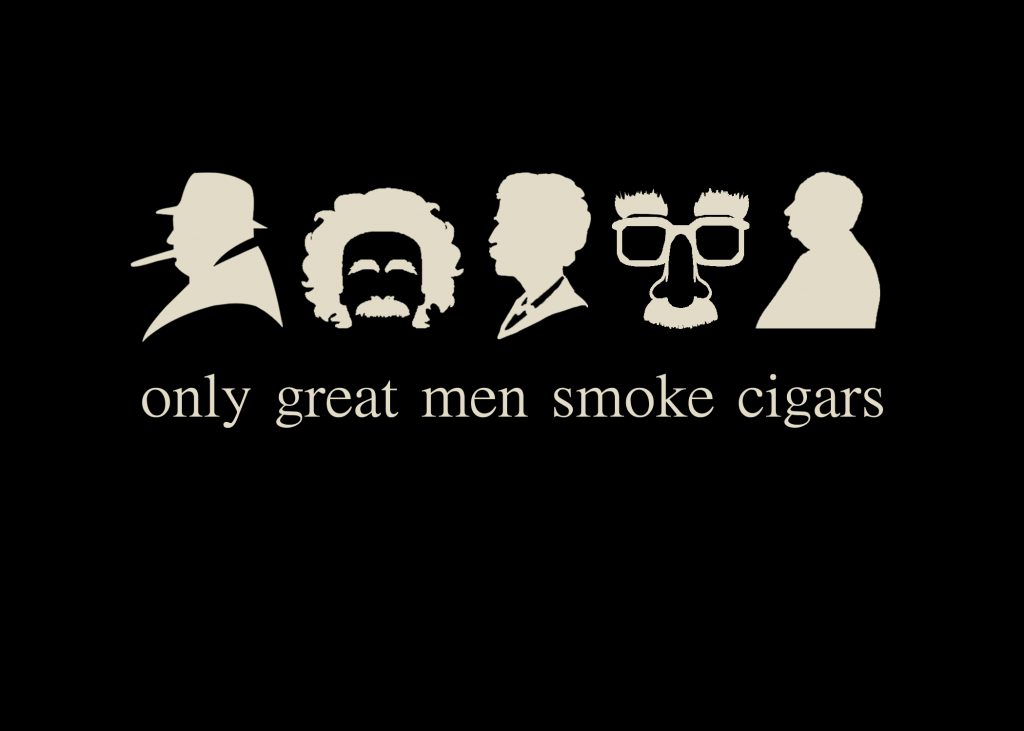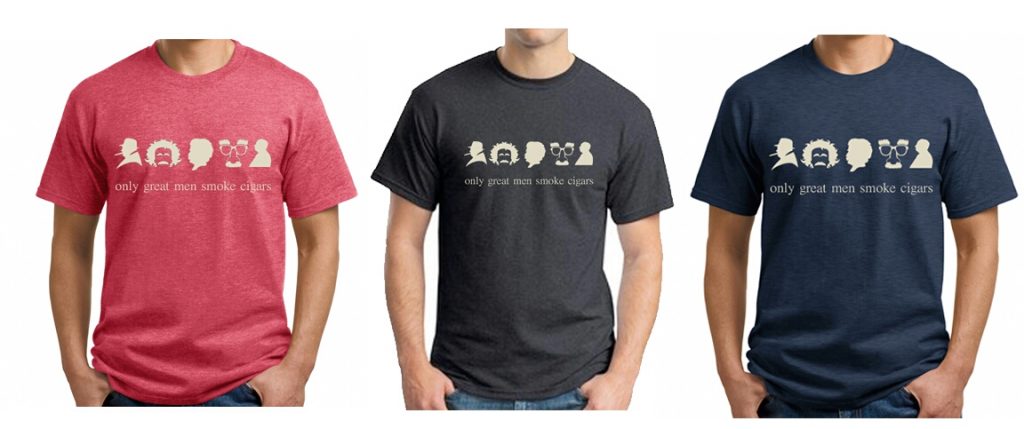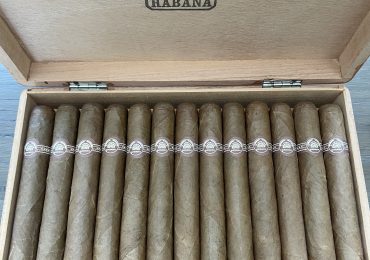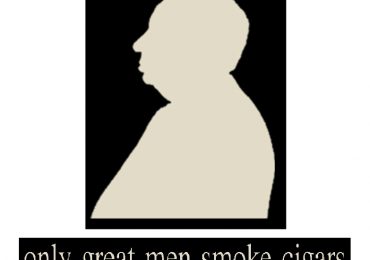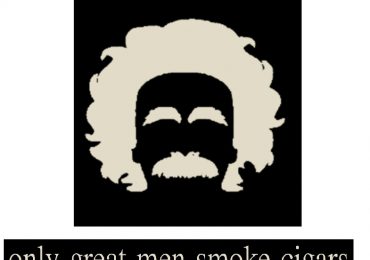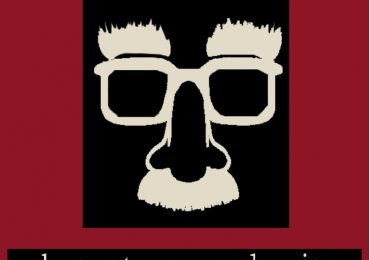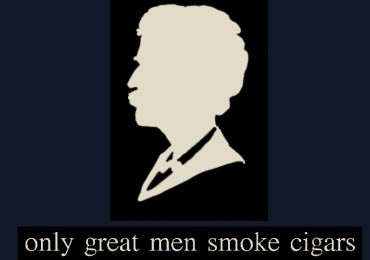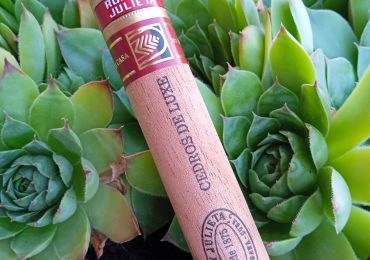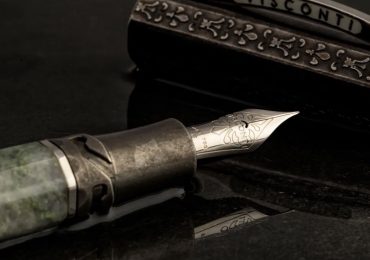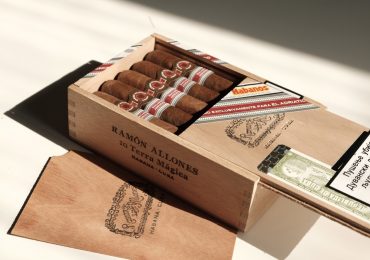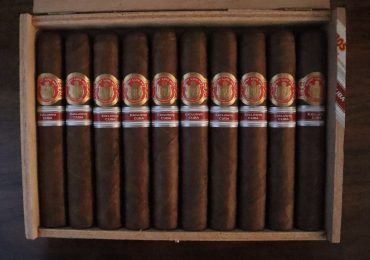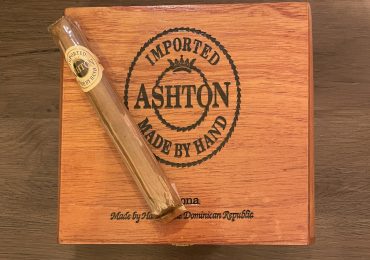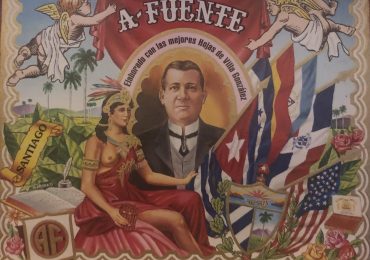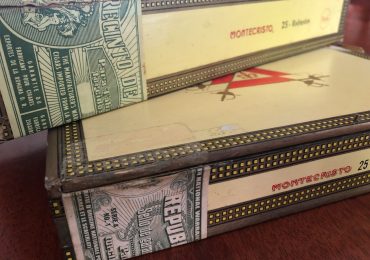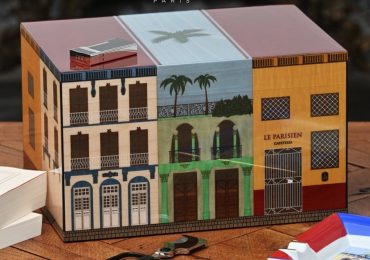Only Great Men Smoke Cigars
The first in a 5-part series of articles “Only Great Men Smoke Cigars”, Danilo Bulatovic explores the habits, love affair, rituals and fun facts on five of the most influential minds in the 19th and 20th centuries and their shared passion for cigars and pipes.
We begin, with none other than Sir Winston Churchill.
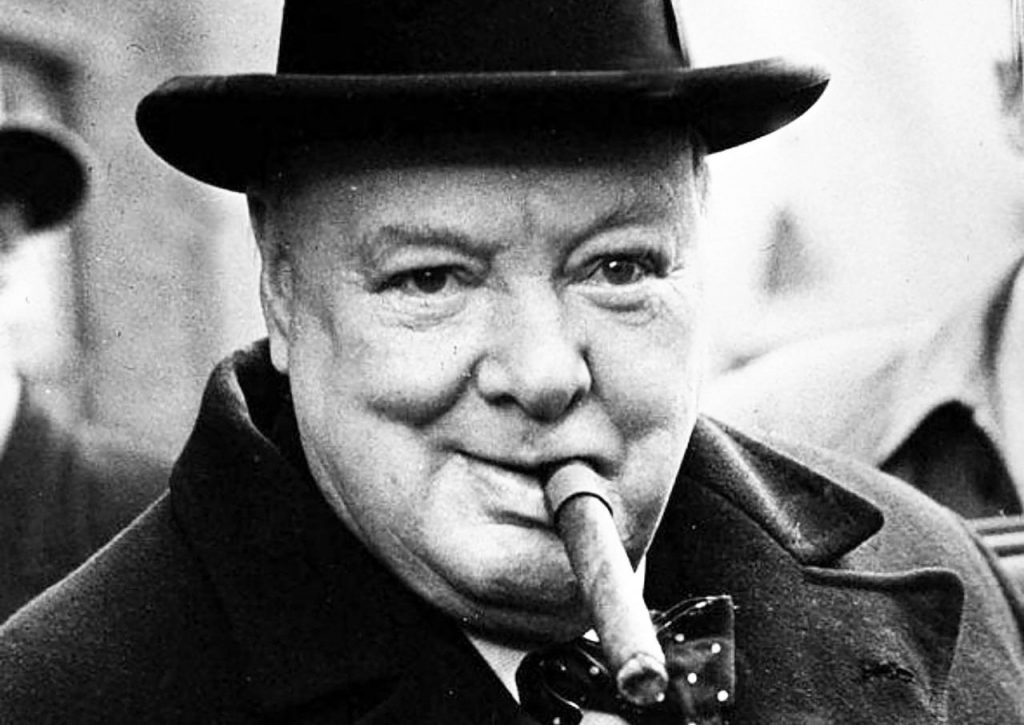
It remains no secret that some of the greatest minds of the 20th century, from artists to scientists to statesmen were also among the most prodigious cigar smokers. This article is the first of the “Great Men” series where I shall explore the legacies of 5 remarkable historical figures through the prism of their shared passion for tobacco. To some this may be a strange frame to look back on a historical icon’s life, but as I and surely the reader know, a shared passion for that fine blue smoke can be an incredible starting point to glean new insights on these figures that have so profoundly shaped our life and culture. One’s preferred vitolas, smoking times, cutting style, or merely how one holds a cigar can reveal much about an individual’s character and temperament, and can be a great point of relatability in appreciating a life. As this series will prove, something most people would define as “trivial” or a “vice”, has had an un-quantifiable effect on the creativity, life philosophy, and personal routines of some of the greatest men in recent history. From the Yalta conference, to the secluded studies of the most cerebral, to the great jazz clubs of the world, you can be sure that the tantalizing dance of cigar smoke has graced the spaces where our future and cultural heritage would be decided upon.
The task of doing the legacy of Sir Winston Churchill justice, is very daunting. Aside from being the strong-willed wartime prime minister that led the UK during the world’s most catastrophic period, Churchill was in every sense a renaissance man. A Nobel-prize winning writer, painter, commander and statesman. Underscoring these incredible periods of his life, as many are aware, was his epicurean passion for Cuban Cigars. The role of Cuba in the grand narrative of Churchill’s life is mythical, it remarkably bookends his momentous life. His 1895 visit as a 20-year old is determined as the most formative period of his life, while his 1946 visit comes at the denouement of his life after his service as prime minister. It is in 1947 after his famous tour of the Romeo factory, that the iconic 178mm 47 gauge Parejo would be re-dubbed the “Churchill” becoming a permanent staple in the brands’ repertoire.
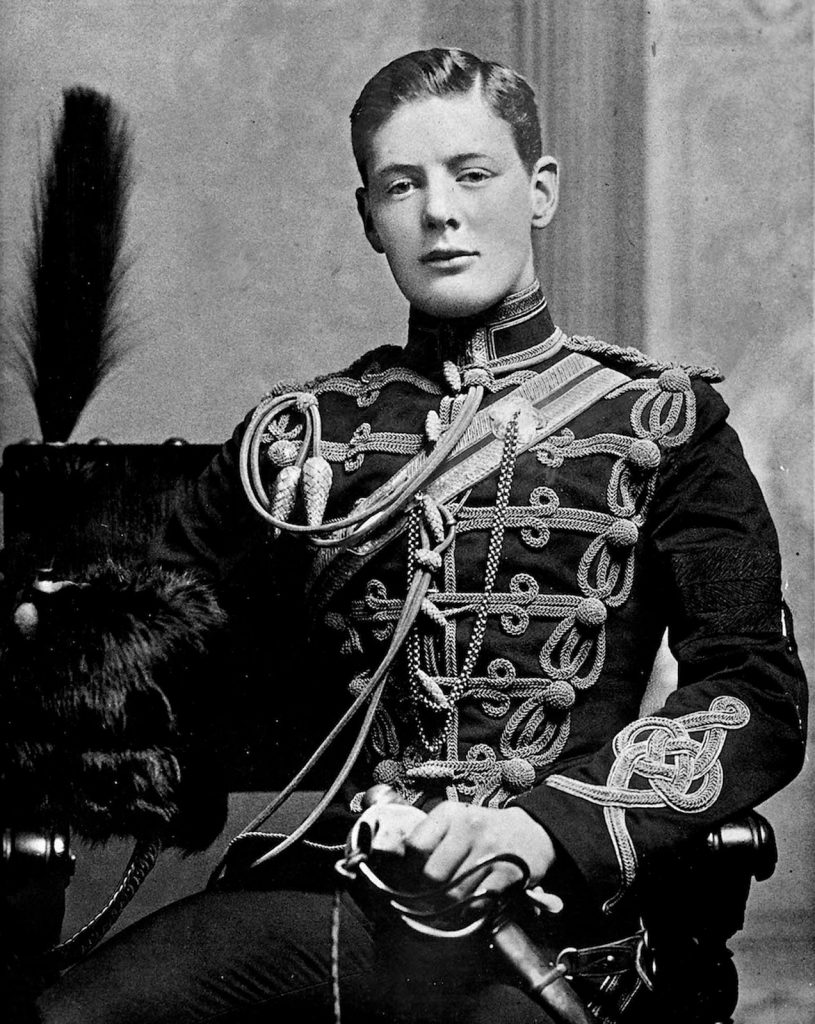
A young Churchill would refer to his first visit to Cuba as his “private rehearsal”, the formative experiences gained on the island completely shaping the contours of his historical trajectory, both in terms of career and in terms of the famous habit that would define him. In 1895, the eager recent graduate of the Sandhurst military academy was anxious to earn his stripes in firsthand combat experience seeing incredible potential as a war correspondent during the second Cuban insurrection against Spanish Colonial rule. So smitten was he with the vitality and dynamism of the small Caribbean nation in revolt that he referred to it as “the place where anything might happen”, a place where he participated in his first military operation amongst the Spanish forces, endured enemy fire, and turned 21. His Cuban “private rehearsal” provided the space where the young Churchill developed and embraced the rampantly discerning, charming, and uncompromising character that we would recognize in his role leading Britain, 45 years later during the UK’s darkest hour.
Churchill would go on to smoke between 8 – 10 cigars a day.
It is also this fruitful period of growth, in which the English gentlemen acquainted himself with the symbolic extension of this character, the Cuban cigar. Within the first few months, Churchill replaced his cigarette habit with Cubans, notably Romeo y Julieta’s (perhaps feeling a kind ship with the famous English playwright behind the name) and the long defunct Cuban brand “La Aroma de Cuba”. Winston wasted no time establishing contacts through colleagues and associates in Havana that would ensure unconditional regular shipments of his two beloved brands to England, even during the international crisis that would come. Churchill who would go on to smoke between 8 – 10 cigars a day, boasting a 3000-4000 count humidor at his estate in Kent, would happily oblige with these shipments with his overzealous pace of smoking. Historians estimate the cost of his hobby preceding the weekly salary of his valet, every 2 days.
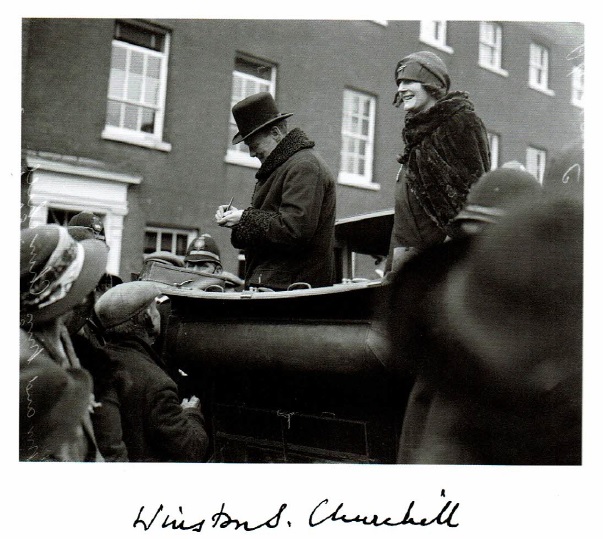
To consider the iconic long, thin gauge Parejo as an extension of the man’s body would not be an understatement. Smoking was an integral part of his meals, and meetings, often pacing around many rooms immersed in a contemplative state, nonchalantly leaving trails of ash everywhere to the horror of the hostesses in his workplace. The man’s oral fixation was so total, that unique contraptions had been invented by Churchill and his close friends to facilitate his passion even in the most unlikely circumstances. His wife Clementine devised a customized bib, to keep the man from burning his silk pyjamas as he smoked in bed. Winston himself famously devised the “bellybando” an additional brown paper to be wrapped around the cigar to provide extra endurance to the cigars that would often be in danger of fraying and falling apart as they stayed perched in his mouth for hours at a time. A special oxygen mask was also designed by the Royal Air Force to allow the honorable statesmen to smoke whilst 15,000 feet in the air in an un-pressurized cabin during the Second World War. Not even the laws of physics were permitted to get in the way of this man’s enjoyment. His tailors naturally complied with an endless stream of work mending innumerable stains and cigar burns in his suits, all with the tacit understanding that an attack on his vice would be an attack on Winston Churchill himself.
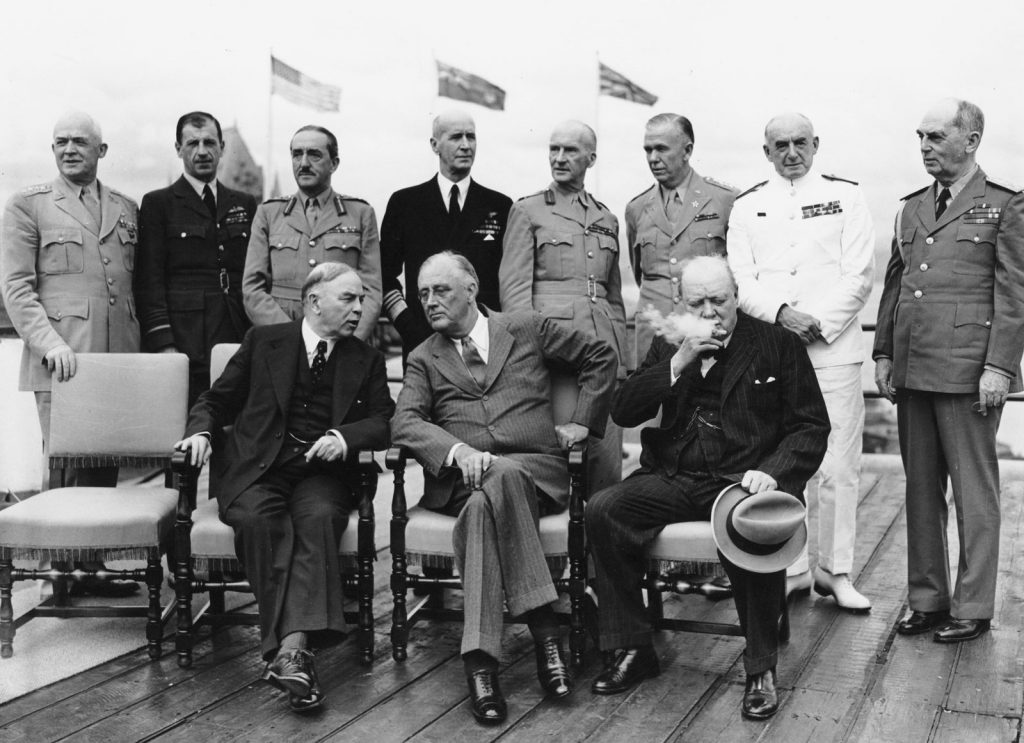
Churchill’s smoking ritual is just as particular as we may suspect. He would use a cigar punch for the incision, then use exclusively imported long matches from Canada to check the draw of the cigar by poking them through the hole. In addition to the soft flame of the match, he would be sure to be in close proximity of nearby candles in case his smoke was to extinguish. As meticulous as he was in his preparation of the cigar, his care usually ended there, Winston going on to chew them until they were unrecognizable nubs, or often abandoned midway, his enjoyment being cut short due to a busy schedule or a sudden flash of inspiration lost in his work. The man’s cigar consumption provided an invariable record of the man’s mythical daily routine, so much so that his half smoked and chewed up cigars have sold at auctions for as much as $12,000. It is an incredible testament to this historical icon that even his cigar detritus is interpolated into a significant historical and cultural artifact just by his association, demonstrating how integral the cigar is to the legend of Churchill.
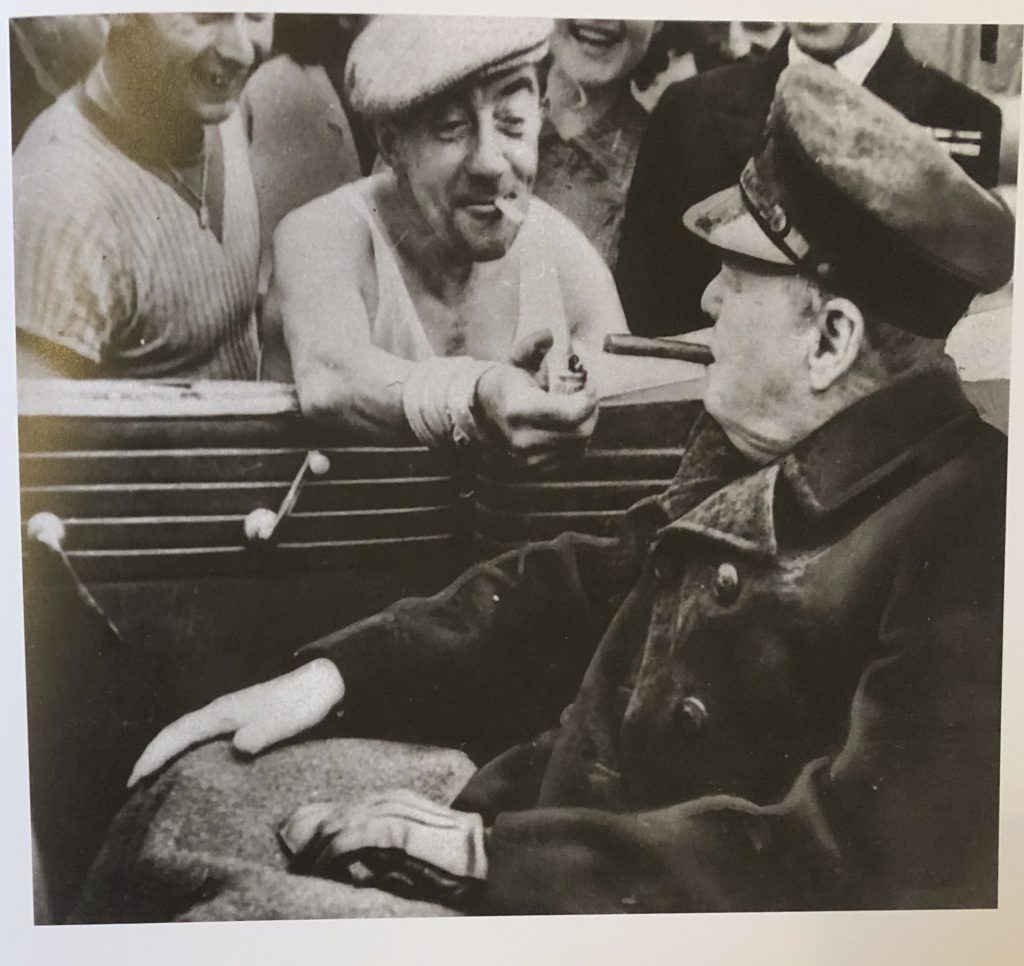
Being faced with unimaginable political pressure and personal strife in his life, leading his country, at the cusp of the world falling to Nazism; cigars provided the support needed to weather the uncertain and highly dangerous times with a clear head. As many readers can relate, the ritual of smoking has a remarkable meditative character of providing mental space, allowing one to approach challenges anew rationally. A sentiment Churchill describes succinctly in his 1932 essay collection “Thoughts and Adventures”. Winston muses how he would have comported himself “with calm and courtesy in some awkward personal encounter or negotiation, or carried (himself) serenely through some critical hours of anxious waiting” without the “goddess Nicotine”, or the “soothing influence of tobacco” on his nervous system”. Considering his reverence for the leaf it’s fitting that he would bookend his illustrious career with one final trip to Cuba in 1946.
He had earned the affection of future revolutionary and cigar icon, a 19-year old Fidel Castro
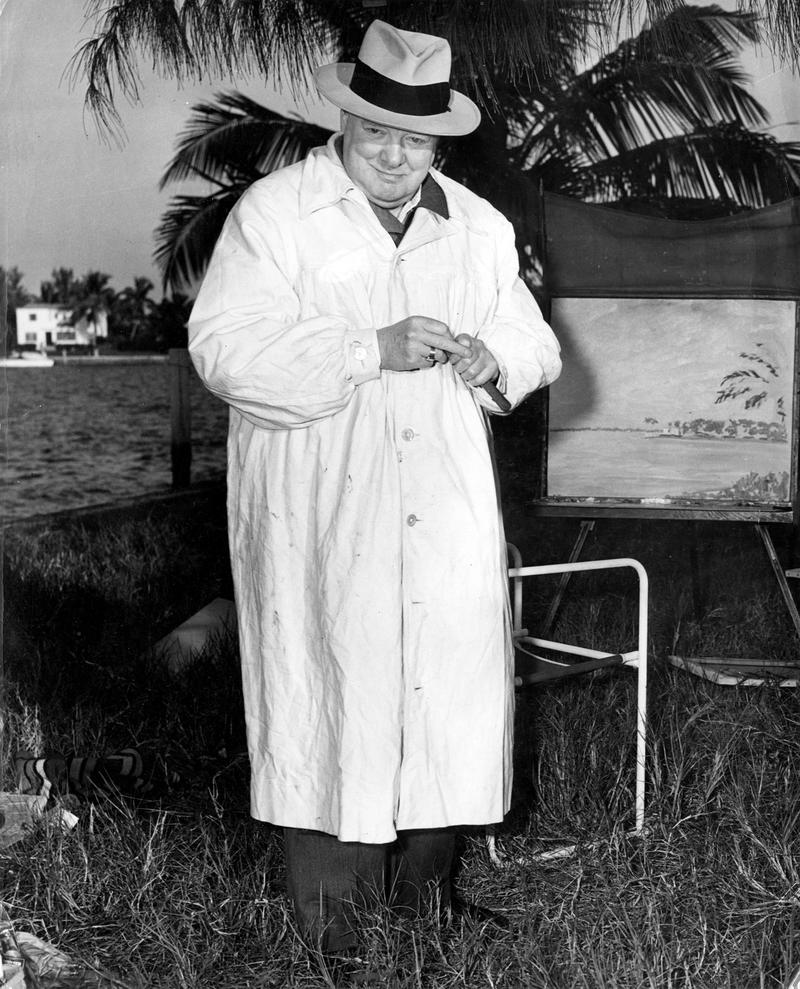
50 years upon his formative first trip, Churchill returned to the island equally revered as an icon of democratic order and the anti-fascist struggle. He had equally earned the affection of future revolutionary and cigar icon, a 19-year old Fidel Castro as well as the embattled president Ramon Grau. His return to Cuba was impromptu, an invitation was extended by the Cuban newspaper “Diario de la Marina” and the manager of the Hotel Nacional, as soon as the British leader of opposition’s presence vacationing in Florida with his family was made public. What was meant to be a brief visit became a public sensation topping the pomp and ceremony reserved for the arrival of a current head of state. Upon the statesman’s visit to the Capitol building a very large crowd had assembled in the public square prompting a speech from Churchill. Through his masterful oratory his speech demonstrated his genuine affection towards the Island with cries of “Viva la perla de las Antillas!”, to the delight of the Cubans. Shortly after Winston would famously pronounce “Cuba will always be on my lips”.
“Cuba will always be on my lips”.
As was necessary in a career that commanded the highest level of power and responsibility, Churchill rightfully did not compromise on his principles as he did not with detractors of his “unhealthy” cigar habit. In true Churchillian fashion he would die at the full age of 90, having lived his twilight years with the same vigor and style as we would expect, cigar in hand.
Read Part 2 of the Only Great Mean Smoke Cigars series. Preview:
In the second part of our series “Only Great Smoke Cigars”, we feature the person who perhaps smoked more cigars than anyone else in history. The legendary influential author, Mark Twain. continue reading
——————————————————————————————————————–


